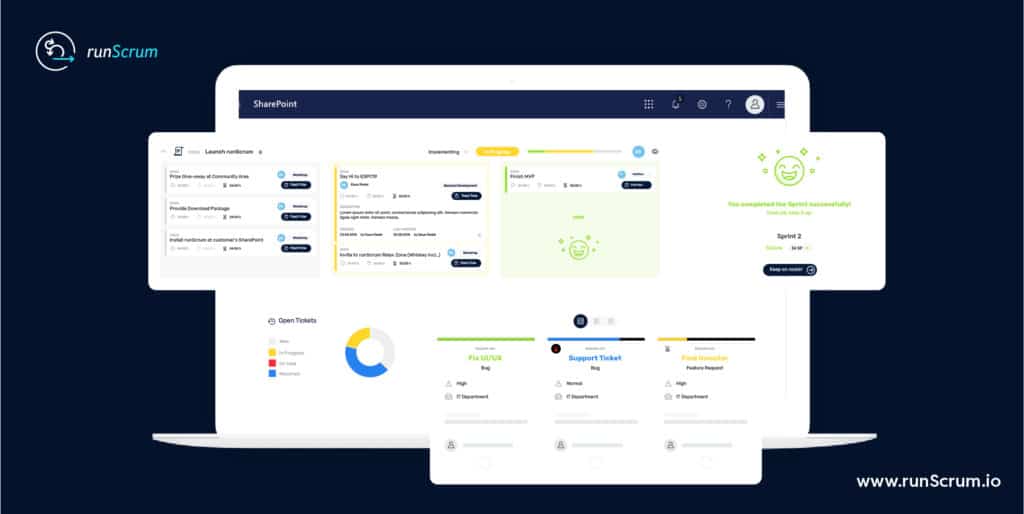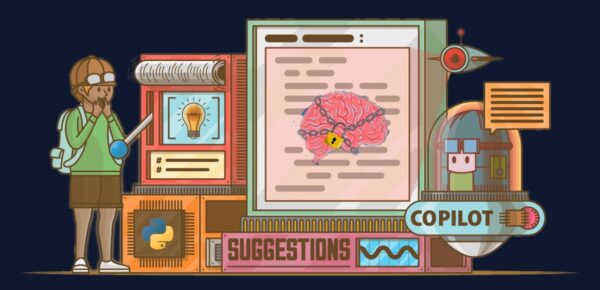
There are many Agile Tools on the market such as Trello, Jira & Co. But just as many organizations understand “digital transformation” to mean the introduction of tools to accomplish certain individual tasks, many agile tools limit themselves to pushing certain tasks through an imaginary workflow. Both of these things fall short of the mark. For a digital transformation to be successful, agile project management must be a critical success factor and an organization needs tools that fully support this process.
Digital transformations always have concrete goals. Digitizing business processes is not the goal, but the means. Goals are to make business processes faster and more efficient, or to enable new business processes through digitization, to get more customers or the like. Agile project management should therefore not only support digital transformation but also directly support the associated goals. The mere creation and processing of tasks in Kanban boards does not suffice, even if this core functionality is often enriched with tools for sprint planning, retrospectives, etc. or with charts for burndowns of sprints or stories.
With runScrum, we go a few steps further by understanding agile project management as part of a comprehensive digital transformation strategy and providing a tool that focuses on the entire value creation cycle. As a result, runScrum places more emphasis on team collaboration than on the processing of tasks.
The organization of a value creation process within a digital transformation is a complex task. As described above, it is more than just the mere implementation of tools. Especially when time and resources are scarce, the complexity of business processes is increasing and the expectations of customers regarding the functionality, quality and availability of products are rising faster and faster. To manage such an end-to-end value-added process is the challenge of agile project management. It starts long before the first story and never ends with a release deployment.
runScrum is divided into three areas, which support this process in all phases, product, team, and DevOps. The phases range from the first product idea to planning, implementation, controlling and permanent operation. Throughout all phases, special attention is paid to the cooperation of the teams within the organization, because without this, a digital transformation, which is also always a cultural change, is not possible. This is not only about the agile teams that are directly involved in the implementation of products, but also the Product and DevOps areas which emphasize the close relationships with stakeholders and agile project managers on the one hand and the infrastructure and operations teams on the other.
In this sector, there are also more and more tools on the market and some more will emerge shortly. runScrum is aimed at companies that are already using MS SharePoint as a collaboration platform but have to resort to tools such as Jira & Co for their digital transformation or agile project management and therefore have to change the platform with all its unpleasant consequences. MS SharePoint is an excellent platform for team collaboration and the company-wide exchange of information. With runScrum, scaled and agile project management can now be organized directly on this platform and all SharePoint features such as document management, content management, security and many more can be used locally and immediately. Now all information is actually only one click away and a new registration, searching for information or rethinking into other structures is finally no longer necessary.
runScrum has been designed by experienced agile coaches and agile project managers who understand the interests of organizations in the value creation process. Therefore, runScrum implements agile best practices more consistently than many other tools, but at the same time concentrates on providing valuable KPIs for the project organization. Thus, runScrum will not only be easily integrated into scaling companies but will also accompany them on their way to a digital and agile future.










